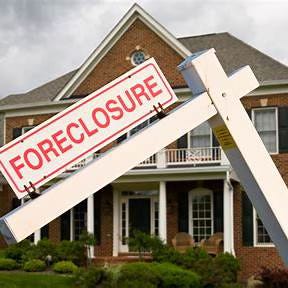Distressed Real Estate in 2025: How Smart Investors Are Turning Defaults into Deals
Rafael Benavente
Distressed Real Estate in 2025: How Smart Investors Are Turning Defaults into Deals
The real estate market in 2025 is presenting a rare and valuable opportunity for investors with the right strategy and timing. As the economy adjusts to high interest rates, tightening credit conditions, and rising operating costs, a wave of distressed properties is hitting the market—both in residential and commercial sectors. Smart investors are finding ways to capitalize on defaults, foreclosures, and overleveraged properties by acquiring assets at significant discounts. This blog explores what distressed real estate means, why 2025 is particularly favorable, and how to navigate this space to find profitable deals.
1. What Is Distressed Real Estate?
Distressed real estate refers to properties whose owners are in financial trouble—often behind on mortgage payments, taxes, or operating expenses. This includes pre-foreclosures (properties in default but not yet repossessed), REO (real estate owned) properties that have already been taken over by lenders, short sales, and tax-lien sales. These properties typically sell below market value due to urgency, poor condition, or legal complications.
2. Why 2025 Is the Year of Opportunity
Several economic and demographic factors are creating a surge in distressed inventory this year:
- **High interest rates** have made refinancing difficult, especially for overleveraged commercial owners.
- **Pandemic-era protections** like forbearance and eviction moratoriums have expired, revealing underlying delinquencies.
- **Remote work** continues to impact office space demand, with major metros reporting commercial vacancy rates above 20%.
- **Insurance premiums and property taxes** have risen sharply in coastal and urban markets, crushing cash flows.
All these trends are contributing to a realignment in property values, with distressed sellers increasingly motivated to make a deal.
3. Where to Find Distressed Deals
Finding distressed assets requires a combination of research, networking, and technology. Top sources include:
- **Foreclosure auctions**: Local sheriff sales and online platforms like Auction.com.
- **Bank REO departments**: Some lenders have departments dedicated to liquidating real estate portfolios.
- **Tax lien databases**: Delinquent tax rolls can lead to both lien investments and eventual property ownership.
- **Wholesalers**: These investors specialize in finding and assigning contracts for distressed properties.
- **PropTech platforms**: Tools like PropStream, LoopNet (for commercial), and Foreclosure.com allow data-driven lead generation.
4. Acquisition and Funding Strategies
Once a deal is identified, investors can use a variety of creative approaches to close:
- **All-cash offers** are king, especially in auctions or pre-foreclosures.
- **Subject-to financing** allows taking over a distressed mortgage without new bank approval.
- **Seller financing** works well in short sales or off-market deals with motivated owners.
- **Hard money loans** provide fast capital, often at higher interest but suitable for short-term flips or bridge scenarios.
Using LLCs or land trusts can also shield liability and simplify partnerships.
5. Turning Problems into Profit
Once acquired, distressed properties can be repositioned in several ways:
- **Fix-and-flip**: Cosmetic and structural improvements allow quick resale.
- **Buy-and-hold rentals**: Great for stabilized cash flow after rehab.
- **Airbnb and short-term rentals**: Especially profitable in tourist or undersupplied markets.
- **Commercial repositioning**: Turn an outdated office building into self-storage, residential, or co-working space.
Investors with vision and a solid contractor network can add significant value in short timeframes.
6. Risks and Legal Issues
Distressed deals carry risk, often due to unclear ownership, liens, or poor property conditions. Buyers must conduct thorough title searches, inspections, and legal reviews. Some markets have strict tenant protections or zoning hurdles that may complicate plans. Environmental liabilities, such as underground tanks or mold, can also turn a bargain into a financial pitfall if not properly investigated.
7. Conclusion: The Smart Money Moves First
Distressed real estate in 2025 is a niche no longer—it’s a mainstream play for smart investors. With the right tools, capital partners, and legal safeguards, these troubled properties can become high-yielding portfolio staples. While the average buyer may be scared off by foreclosure headlines, experienced investors know this is where real value lies. As always, due diligence and a solid strategy are essential. In every downturn, there’s opportunity—and in 2025, it’s in the deals nobody else wants.
By Rafael Benavente

